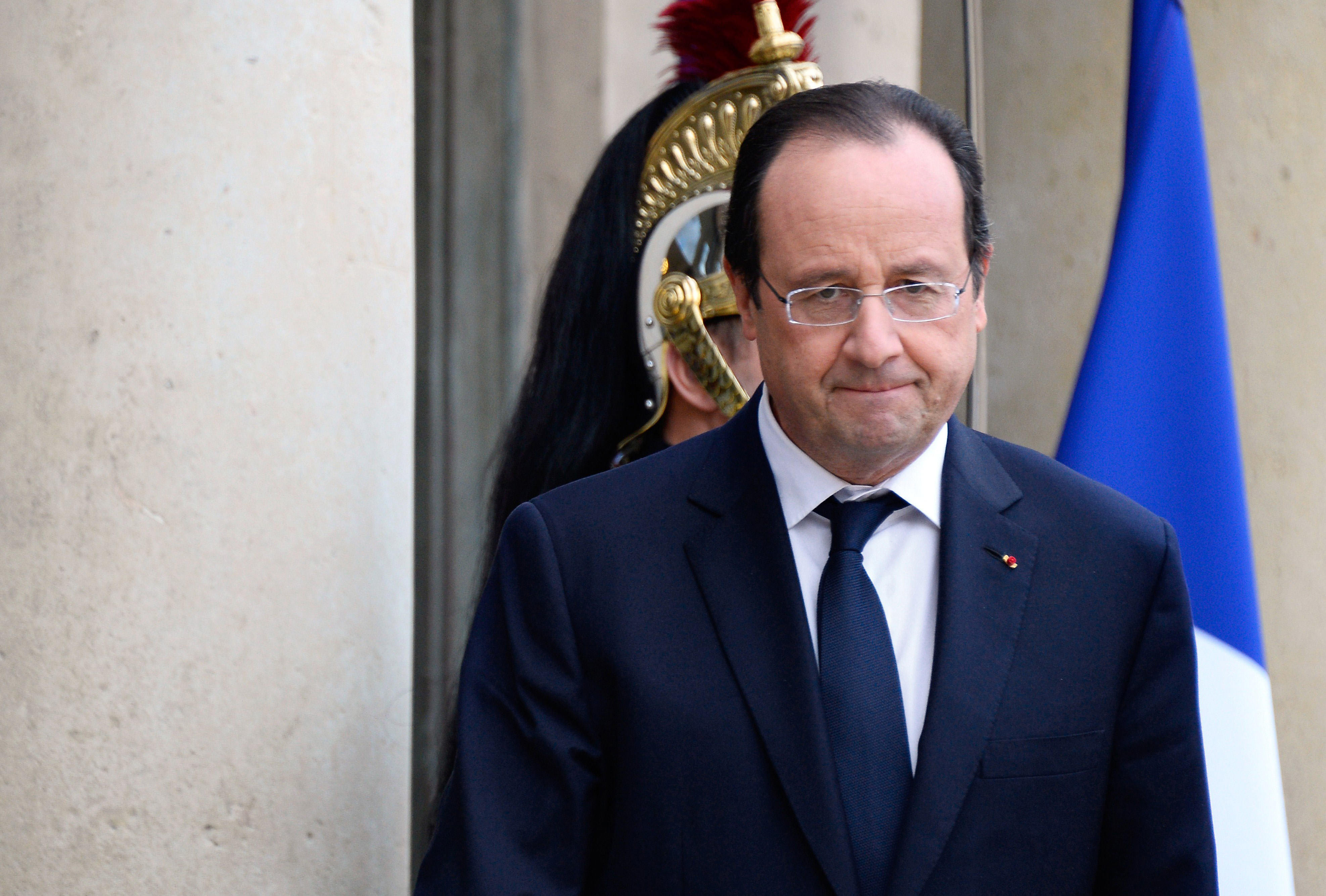Francois Hollande purges cabinet: what next for France?
French president hits reset button as France argues about best way to handle economic stagnation

A free daily email with the biggest news stories of the day – and the best features from TheWeek.com
You are now subscribed
Your newsletter sign-up was successful
France's president Francois Hollande has told his prime minister, Manuel Valls, to dissolve his government and form a new one. It is the country's second major re-shuffle in just five months, reports the Daily Telegraph.
Dubbed a "purge" by some commentators, the surprise move comes as France struggles to emerge from economic stagnation. Many see Hollande's decision as a sign of dissatisfaction at Valls's handling of divisions in his cabinet - and in particular with one man, economy minister Arnaud Montebourg.
What has Hollande done?
The Week
Escape your echo chamber. Get the facts behind the news, plus analysis from multiple perspectives.

Sign up for The Week's Free Newsletters
From our morning news briefing to a weekly Good News Newsletter, get the best of The Week delivered directly to your inbox.
From our morning news briefing to a weekly Good News Newsletter, get the best of The Week delivered directly to your inbox.
France's Socialist president has formally asked his PM to form "a team consistent with the direction he has set himself for the country". Valls first offered the resignation of his government, a formality to allow him to carry out a reshuffle.
What was the trigger?
While the presidency gave no reason for the decision, the timing suggests Hollande is reacting to the "insubordination" of his economy minister, Montebourg. As one of the just-dissolved government's left-leaning figures he was at odds with cabinet centrists including Valls. Montebourg told Le Monde on Saturday that Germany was "trapped in an austerity policy that it imposed across Europe" and said on Sunday he had asked for a "major shift" in economic policy from Hollande and Valls.
What next for Montebourg?
A free daily email with the biggest news stories of the day – and the best features from TheWeek.com
As the cabinet was dissolved yesterday, Montebourg blamed Hollande's "absurd" austerity policies and the eurozone's fiscal stance for "the unnecessary prolongation of the economic crisis and the suffering of the European population", the Financial Times reports. The prime minister has not announced his new line-up yet - but commentators say it is extremely unlikely the 51-year-old Montebourg will be included.
How did Montebourg get the job in the first place?
The Telegraph says Montebourg was appointed in reaction to a "drubbing" the ruling socialists suffered in local elections in April. In his previous role, as industrial renewal minister, he had grabbed headlines by standing up to big business, so his promotion may have been a sop to the grass roots of the party.
Why is France in such political turmoil?
The Telegraph points out that the French economy has been stagnant for the past six months. Earlier this month, the central bank warned Hollande had no chance of reaching his target of one per cent growth for 2014, forcing him to revise it down to 0.5 per cent. This "economic gloom" has left the government deeply unpopular, says the FT, with Hollande's personal approval at just 17 per cent and Valls at a well below par 36 per cent.
-
 The ‘ravenous’ demand for Cornish minerals
The ‘ravenous’ demand for Cornish mineralsUnder the Radar Growing need for critical minerals to power tech has intensified ‘appetite’ for lithium, which could be a ‘huge boon’ for local economy
-
 Why are election experts taking Trump’s midterm threats seriously?
Why are election experts taking Trump’s midterm threats seriously?IN THE SPOTLIGHT As the president muses about polling place deployments and a centralized electoral system aimed at one-party control, lawmakers are taking this administration at its word
-
 ‘Restaurateurs have become millionaires’
‘Restaurateurs have become millionaires’Instant Opinion Opinion, comment and editorials of the day
-
 Epstein files topple law CEO, roil UK government
Epstein files topple law CEO, roil UK governmentSpeed Read Peter Mandelson, Britain’s former ambassador to the US, is caught up in the scandal
-
 Iran and US prepare to meet after skirmishes
Iran and US prepare to meet after skirmishesSpeed Read The incident comes amid heightened tensions in the Middle East
-
 Israel retrieves final hostage’s body from Gaza
Israel retrieves final hostage’s body from GazaSpeed Read The 24-year-old police officer was killed during the initial Hamas attack
-
 China’s Xi targets top general in growing purge
China’s Xi targets top general in growing purgeSpeed Read Zhang Youxia is being investigated over ‘grave violations’ of the law
-
 Panama and Canada are negotiating over a crucial copper mine
Panama and Canada are negotiating over a crucial copper mineIn the Spotlight Panama is set to make a final decision on the mine this summer
-
 Why Greenland’s natural resources are nearly impossible to mine
Why Greenland’s natural resources are nearly impossible to mineThe Explainer The country’s natural landscape makes the task extremely difficult
-
 Iran cuts internet as protests escalate
Iran cuts internet as protests escalateSpeed Reada Government buildings across the country have been set on fire
-
 US nabs ‘shadow’ tanker claimed by Russia
US nabs ‘shadow’ tanker claimed by RussiaSpeed Read The ship was one of two vessels seized by the US military